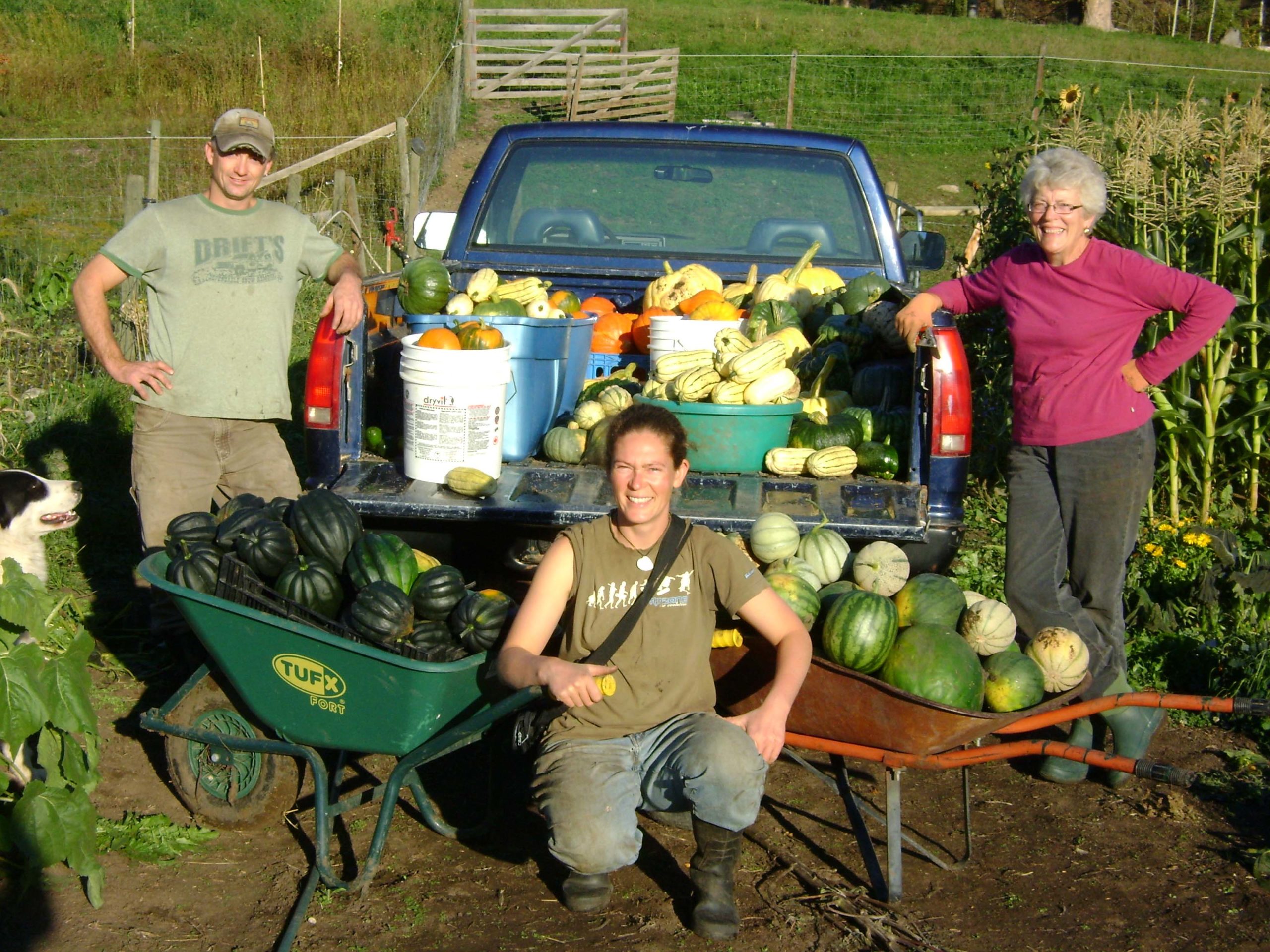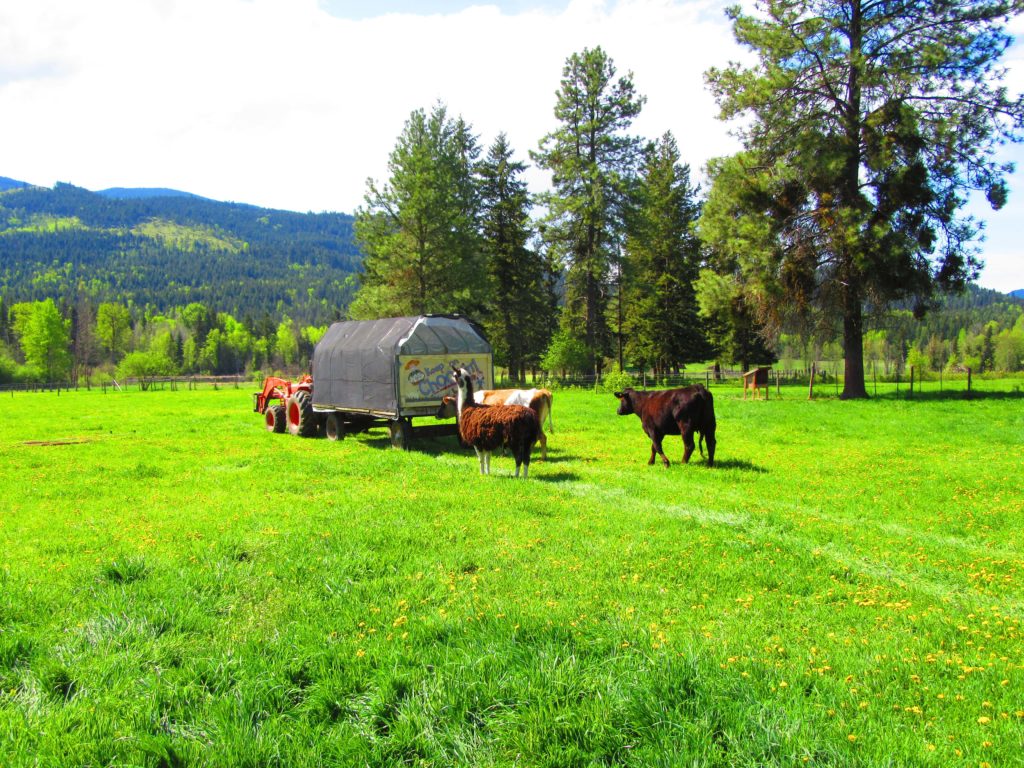This is Ranfurly Farm...
Twenty acres of pasture surrounded by the forested hills and wetlands of picturesque Turtle Valley.
Who We Are
Purchased in 2009, Ranfurly Farm is home to three generations of farmers. Jen, Adam, and their son Owen farm with Jen’s parents, Mike and Margaret. Producing free range eggs, grass fed beef and pasture raised poultry, Jen and her husband Adam believe in feeding people nutrient dense food, raised in way that is respectful of the animal and beneficial to the environment. We try to follow the principles of regenerative agriculture, to heal our soil and improve our land. Farming is an ever evolving art, and we are continually fine tuning our practices based on the realities of our farm, our soils and our climate.
Community Supported Agriculture: the relationship between you, your farmer and your food.
This is the slogan Adam and I came up with when we started our farm business in 2010. At the time we were going to be organic market gardeners, and we ran a weekly veggie box program until 2018 when we shifted our focus to poultry and beef. However, this phrase still rings true to us. We build relationships with our customers. They know us, and trust us to grow the food that nourishes their families. They visit the farm to pick up their orders, and can see how we farm and raise our animals. That is true transparency.
More About Us
While our business is selling beef, chicken and eggs, part of the farm’s purpose is to feed our family. We have a large garden that keeps both households in vegetables year round, many berry bushes and an ever expanding orchard. We raise and butcher our own pork and turkey, and have bees for honey. It takes a village to raise a child, and at least that to run a farm and produce enough food to feed both our households.
Mike and Margaret are career farmers, and Ranfurly Farm would not be possible without their presence. Mike has close to 50 years of experience raising livestock and gardening, and helps manage the cow herd and the house garden, while Margaret makes sure all the vegetables and fruit produced on the farm get picked and preserved. They also make sure Owen has someone to hang out with when we are working. Adam is our mechanic, and construction guy, which means he fixes the things Jen cannot, and takes on the heavier work. Jen runs the day to day of the farm and takes care of the main garden.

Why Pasture raised?
Livestock raised on pasture is healthier for the environment, for the consumer, and for the livestock itself. Animals are free to follow their natural instincts and behaviors, have lots of sunshine, fresh air, and grass.
This is not permanent chicken yards or cattle pens that become barren earth from the concentration of manure and constant traffic. It is livestock enhancing the diversity of plant life and insects present in a healthy grass based ecosystem. At Ranfurly Farm we strive to have our animals work for us, fertilizing the plants with their manure, mowing it with their grazing, and rejuvenating the entire ecosystem.
Regenerative Agriculture
In the spring, the hens are moved to where the cattle wintered, so they can scratch through and spread the feed and manure that accumulated, no tractor work required. The cattle in turn graze ahead of the poultry so the mature grass is consumed or trampled, and lush new growth is ready for the chickens.

Ranfurly is a small town in Alberta, that is located on a corner of the original family homestead. Mike and Margaret picked the name in tribute to Margaret’s father Norman, who grew up in Ranfurly and worked in agriculture all his life.
This is a long story, but in a nutshell, I wanted to feed people in a way that wasn’t damaging to the environment or the animals involved. In my eyes, farms and farmers feed people. Can you call yourself a farmer if there is nothing on your farm that you can eat? I can think of no better way to bring people together than good food borne of a common desire to nourish the land. What better way to steward the land and heal the earth than by feeding people?
Growing up on a farm in a faming community I was one of those kids who was always drawn to farming, but who believed they could never make a living at it. When I finally decided to accept farming as my calling I was in my late twenties, and I started apprenticing with successful organic farmers. When Mom and Dad purchased this farm in 2009, Adam and I decided to move here and give farming a go.
No. Our farm is small, and we buy all of our hay. We buy it from neighbours we have built relationships with and whose practises we know and fields we can see. They have not used herbicides and use a minimum amount of Nitrogen fertilizer. Organic certification would mean these neighbours would have to certify their land or we would have to by feed elsewhere, and the increased costs would make our business unsustainable. Because we have a direct relationship with our customers they ask us about our practices and do not care about certification.